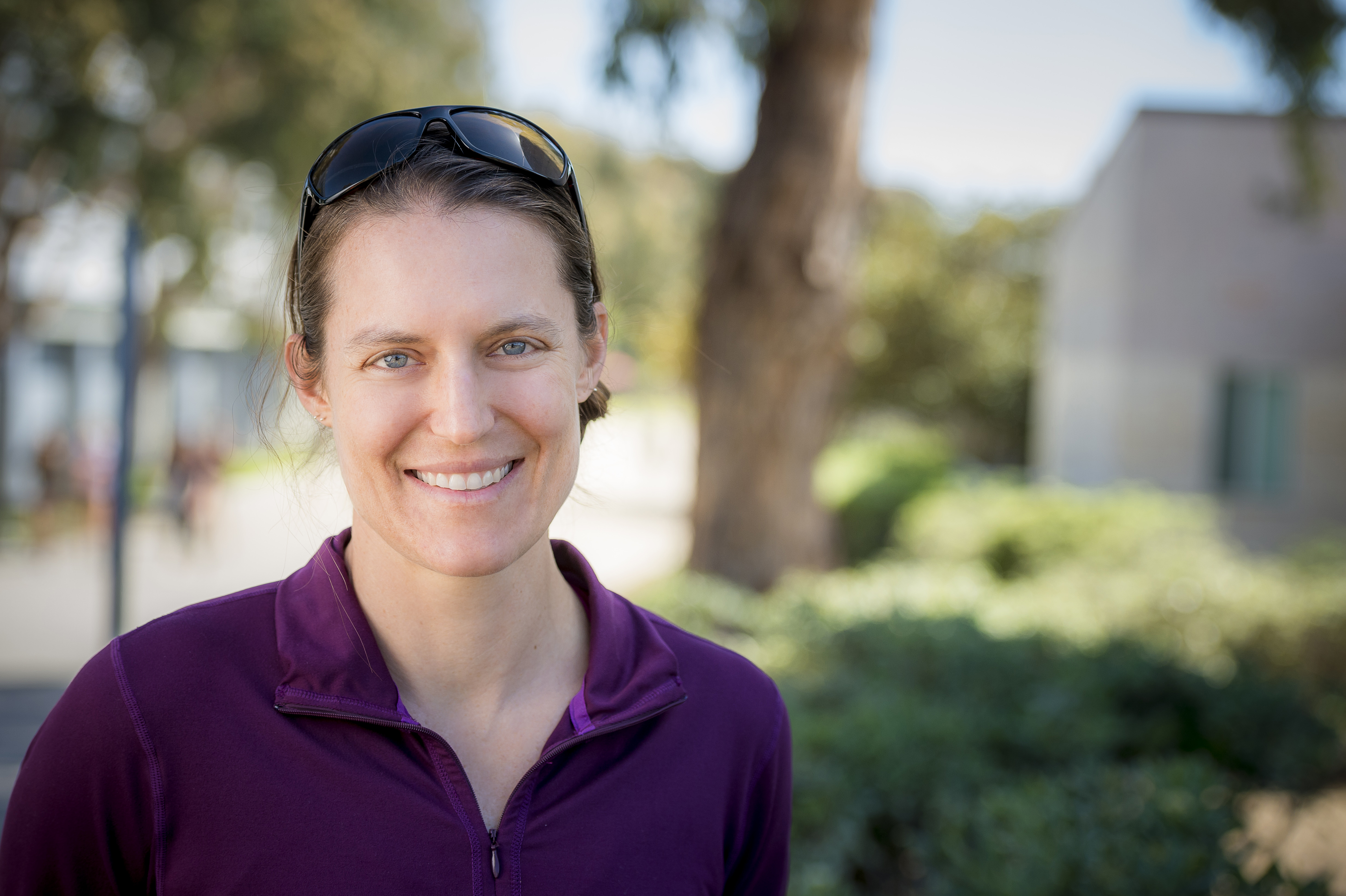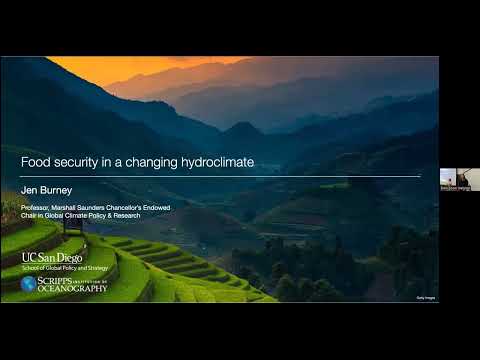Food Security in a Changing Hydroclimate

Jen is a leading environmental scientist whose interdisciplinary scholarship has unpacked some of the most complex and important linkages between a changing climate and global food security. Her seminar will shed light on understudied impacts of a shifting hydroclimate on agricultural systems, providing policy-relevant insights for adaptation.
—Tamma Carleton, Assistant Professor, Bren School

Global Food Security in a Changing Climate
This talk provides a comprehensive overview of the intersection between climate change, agricultural production, and policy, underscoring the complexity and interconnectedness of these global challenges.
ABSTRACT
Agricultural adaptation is critical for achieving the twin goals of eliminating global hunger and stabilizing earth’s climate. Yet while the whole planet is warming, the evolution of hydrological conditions for crop growth is heterogeneous. Here I will present work from my research group on several underexplored dimensions of hydroclimatic variability – seasonal shifts, reliance on water from land versus water from the oceans, and hydrological impacts of aerosol emissions – and their implications. Each of these hydroclimatic changes poses distinct risks to agriculture and food security, but by starting from physical principles, each of these cases also leads to concrete priorities for adaptation.
Key Points:
Breadth and Depth of Research:
Jen's work uniquely integrates various fields including physics, ecology, statistics, remote sensing, economics, and policy. Her deep, context-specific knowledge covers climate, food security, air pollution, and remote sensing.
Climate Change and Food Security:
Recent reversals in global hunger reduction emphasize the urgency of adapting agriculture to climate change and ensuring food security. Jen highlights the intersection of increasing hunger, rising population demands, and tightening climate commitments.
Agricultural Production Dynamics:
- Cropping Frequency: Analyzing global trends in caloric production, land use, yield, and cropping frequency, Jen's team investigates the impact of climate on crop cycles. They found temperature and precipitation significantly affect cropping frequency, and a marginal increase in irrigation could offset some climate impacts.
- Hydroclimate Structure: The research also delves into the sensitivity of crops to water sources, distinguishing between oceanic and land-based water. This helps identify areas where agriculture is most vulnerable to climate change.
- Aerosol Impacts: The team studied the effects of aerosols on global and regional climates, particularly their impact on temperature and precipitation. This research helps understand the downstream agricultural benefits of cleaner air and the complex teleconnections caused by aerosols.
Adaptation Strategies:
The insights from Jen's research suggest targeted adaptation strategies, such as prioritizing areas with high dependence on land-based precipitation and considering the hydrological impacts of anthropogenic emissions.
Implications for Policy and Planning:
The findings have significant implications for planning climate resilience in agriculture, focusing on high-productivity and deforestation reduction. Additionally, understanding aerosol impacts can guide policy decisions related to industrial emissions and geoengineering.
BIO
Jen Burney is an environmental scientist and holds the Marshall Saunders Chancellor’s Endowed Chair in Global Climate Policy and Research at the School of Global Policy & Strategy and Scripps Institution of Oceanography at the University of California, San Diego. Her research focuses on the relationships between climate and food security – including quantifying the effects of climate and air pollution on land use and food systems, understanding how food production and consumption contribute to climate change, and designing and evaluating technologies and strategies for adaptation and mitigation among the world’s farmers. She earned a PhD in physics in 2007, completed postdoctoral fellowships in both food security and climate science, was named a National Geographic Emerging Explorer in 2011, and joined the UC San Diego faculty in 2012.